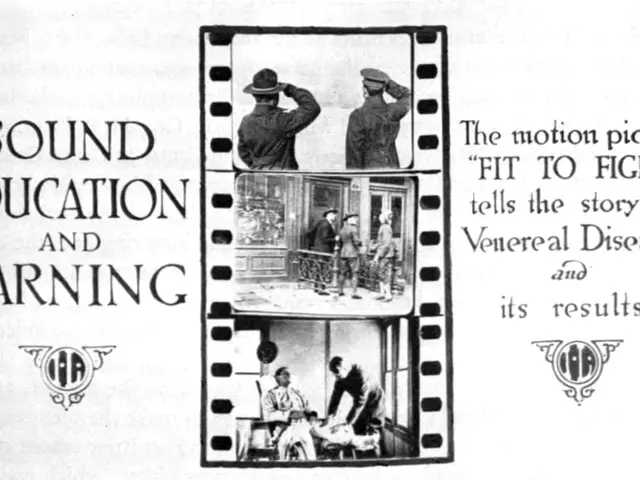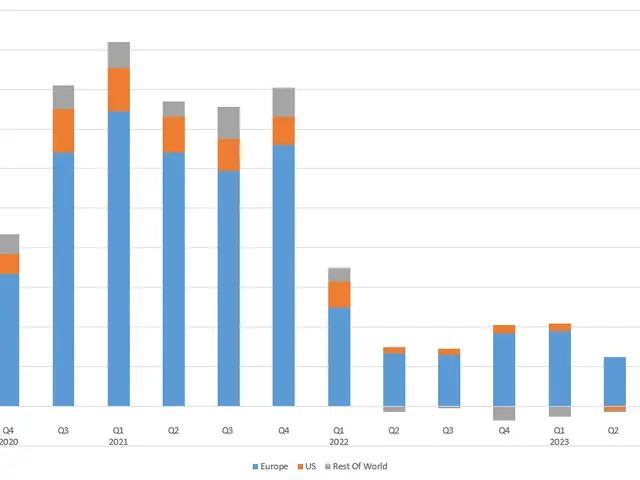Mental Health Impacts Substance Abuse: Exploring the Link Between Psychological Health and Addiction
Bolstering Mental Health and Addiction Treatment: A Holistic Approach
Mental health disorders and substance use disorders frequently coexist, intertwining to create complex treatment challenges. To improve outcomes for those struggling with these conditions, a holistic approach is necessary, addressing both mental health and addiction concurrently.
Mental Health and Addiction: A Two-Way Street
The relationship between mental health issues and addiction follows a bidirectional path. Mental health problems can give rise to addiction, and addiction can intensify or initiate mental health concerns.
Self-Medication and Vulnerability
Individuals attempting to alleviate mental health concerns may resort to substances or behaviors, such as excessive drinking or gambling, to provide temporary relief. This coping mechanism can contribute to the development of addiction over time. The vulnerability to addiction is also heightened among those diagnosed with certain mental health conditions like depression and anxiety.
Addiction feeding Mental Health Issues
Neurochemical imbalances caused by substance addiction can worsen or even trigger mental health symptoms. Additionally, the consequences of addiction—isolation, relationship strains, and legal troubles—can intensify feelings of anxiety and depression, exacerbating underlying mental health concerns.
Addressing the Nexus of Mental Health and Addiction: Integrated Treatment
To provide effective, comprehensive treatment, the integration of mental health and addiction care is essential. This dual diagnosis therapy acknowledges the interplay between the two and addresses both conditions simultaneously.
Tailored and Multifaceted Treatment Plans
Treatment must be adapted to each individual's unique mental health and addiction severity, psychosocial pressures, and clinical requirements. This approach may encompass various evidence-based therapies and medications that target both mental health disorders and substance use disorders.
Prioritizing Needs
At times, immediate attention may focus on tackling craving and withdrawal symptoms of addiction, while on other occasions, urgent psychiatric symptoms must take center stage. The focus depends on the patient's condition and the available resources.
Breaking the Cycle in Anxiety and Addiction
Regarding cases like anxiety and substance abuse disorders, where substances offer initial relief yet escalate anxiety in the long run, specialized attention is crucial to break this cycle. Appropriate therapies and medications that address both disorders simultaneously are the key.
Embracing Family Therapy and Support
Recognizing the impact of addiction and mental health issues on the family system, incorporating family therapy into the treatment plan improves communication, sets healthy boundaries, and fosters long-term recovery.
Utilizing Helplines and Support Services
Access to confidential 24/7 referral and information services provides individuals and families with the necessary support to locate appropriate integrated treatment resources.
The Road to Recovery: A Chance for Hope
The intricate relationship between mental health and addiction necessitates collaboration between healthcare professionals, policy-makers, and the wider community. Recognizing the importance of addressing both conditions together raises hope for individuals seeking help and offers a path forward towards a healthier, more fulfilling life.
- A holistic approach, addressing both mental health and addiction concurrently, is crucial for improving outcomes in individuals struggling with co-occurring mental health disorders and substance use disorders.
- A tailored treatment plan encompassing various evidence-based therapies and medications may be necessary, as each individual's mental health and addiction severity, psychosocial pressures, and clinical requirements differ.
- Regarding disorders such as anxiety and substance abuse, breaking the cycle of escalating anxiety through simultaneous treatment of both disorders can be facilitated through appropriate therapies and medications.
- Incorporating family therapy into the treatment plan enhances communication, fosters healthy boundaries, and supports long-term recovery on a family level, recognizing the complex impact of addiction and mental health issues on the overall family system.
- Access to confidential 24/7 helplines and support services can provide individuals and families with vital resources and guidance to find appropriate integrated treatment options.
- Collaboration between healthcare professionals, policy-makers, and the wider community is essential, as addressing mental health and addiction together offers hope to individuals seeking help and a path towards a healthier, more fulfilling life.







